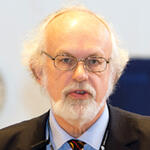Blog
New Structural Economics – An Interview with Justin Lin
27 August 2014
In this interview Justin Lin, Non-resident Senior Research Fellow at UNU-WIDER, talks about how the state can enable the process of structural transformation of the economy, how to fund the necessary investments of this transformation, structuralism versus new structuralism, how countries can use their true comparative advantage to develop, and much more.
by Roger Williamson
Questions:
00:08 In your book 'The Quest for Prosperity' you call for an active role for government. Why?
01:15 Who should pay for the major international investment in infrastructure which you advocate?
01:56 How does your approach differ from the old structuralism?
03:34 How does your explanation of the causes of the 2008 economic crash differ from the usual analysis?
05:41 What are the main elements of your Growth Identification and Facilitation Framework?
06:47 How does your approach differ from that of Dani Rodrik?
08:15 Which countries have followed an approach of structural transformation?
09:42 What is the relationship between stability and dynamic growth in China?
11:11 You have also commented on other countries following a similar dual track policy – Cambodia, Mauritius, and Vietnam – what has that meant for them?
12:15 You have warned about Middle Income Trap, but said that it is not a country's destiny – can you explain what you mean?
13:37 Why are you confident that China can enjoy twenty more years of 8% growth?
15:39 Even 7% growth doubles the size of the economy in 19 years – doesn't that represent a great leap forward?
16:12 Why do you think that Africa can take light manufacturing jobs from China – as you argued in your WIDER Annual Lecture?
17:58 Are there cases of successful manufacturing in Africa which take advantage of the new opportunities?
22:09 In future, do you see African manufacturing being done in co-operation with China or competition with China?
22:32 How do you see the importance of UNU-WIDER and its network of scholars?
23:13 Structural transformation has been one of your intellectual contributions and now it is a major emphasis of the UNU-WIDER work programme. What do you want to see happen through this research?
For more interviews, see UNU-WIDER channel on Youtube.
 Join the network
Join the network

